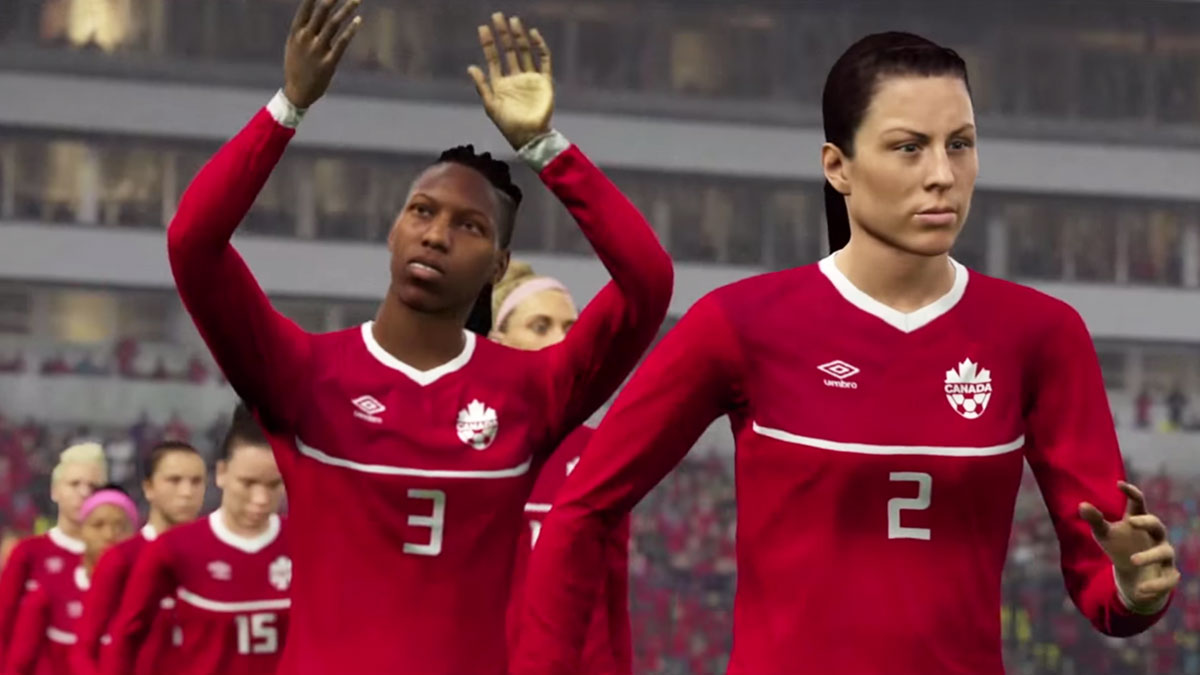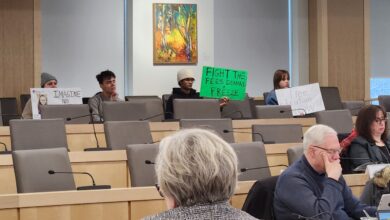Editorial: NCAA should allow EA Sports to pay student athletes
 Screenshot
ScreenshotI should be unwrapping a shiny new NCAA Football 16 Marcus Mariota featured on the cover. Instead, I’m forced to dust off an outdated, “old-gen” copy of NCAA Football 14 with Denard Robinson playing for the Michigan Wolverines.
True, I could swap NCAA Football with Madden NFL 16’s ‘Be a Player’ and develop my own backstory before playing in the Super Bowl to get my fix. Or, I could pick up NBA 2K16 and play through the new “Spike Lee Joint” career mode, which follows a high school recruit through the rigors and drama of the NBA. NHL 16’s ‘Be a GM’ and MLB 16: The Show aren’t bad either. But nothing was quite like NCAA Football.
The year-long recruitment of high school kids against your friends, managing a Division I football program after building it from scratch, unrealistic power up cards, endless hours of selecting uniform colour combinations and running the read option was unlike any video game out there, sports-related or not.
But none of that’s possible anymore.
After EA Sports profited off the likenesses of players while offering no compensation for the college athletes featured in the games and the resulting class-action lawsuit by former UCLA Bruin Ed O’Bannon, NCAA video games are no more.
Selfishly, I just want my video game series back. But the now-ended relationship between EA Sports and the NCAA goes much deeper.
EA removing 13 NCAA women’s soccer players from the FIFA 16 video game because it compromised the players’ NCAA eligibility is just the latest example of the NCAA’s greed and unwillingness to properly compensate the reason why it’s a billion-dollar industry — the athletes.
True, there are NCAA rules that prevent athletes from receiving any sort of payout, which is why EA was unable to disburse college athletes. And yes, the O’Bannon lawsuit, which was settled for US $60 million in 2014, paid players who appeared in the games for a maximum up to $7,200. But there was a problem with U.S. District Judge Claudia Wilkin’s decision in the O’Bannon versus NCAA ordeal: she didn’t deem the current NCAA rules too restrictive.
Wilkin’s decision didn’t leave any room for negotiation. The 20,000 claims filed by former NCAA athletes who appeared in college football and basketball video games were successful in obtaining their funds, but it did absolutely nothing for a possible collective bargaining agreement in the future. The college athletes did get paid, but it didn’t give them an actual voice regarding the NCAA’s sanctions against player compensation.
There needs to be a new system in place, one that can be renewed and renegotiated as years pass, much like other major sports leagues. You can set a baseline arbitrary number, such as $5,000 per year trust fund Wilkin ruled earlier this year for student athletes, but several years from now, that $5,000 — which the NCAA appealed earlier this year — probably won’t be enough. The NCAA still has total control over their athletes, so nothing has really changed. The amount of money Wilkin awarded to players doesn’t truly represent their worth to the NCAA, and the athletes deserve to be unionized and have that conversation.
EA ultimately decided to discontinue any college sports games because they too were being sued for not paying players for their likenesses. The difference was that EA, although they wanted to pay the players, couldn’t because of the NCAA’s strict guidelines. EA even lobbied the NCAA to change those rules so that the video game company could pay athletes a chunk of the $80 million in revenue generated yearly by the NCAA Football series, but the NCAA unsurprisingly didn’t budge.
EA knows it can’t make and market a game without the likeness of player names, which is the number one request from their consumers, but the NCAA would rather pull their license completely than entertain that thought.
So while O’Bannon and his attorneys celebrate their perceived win in court, the 13 college women’s soccer players removed from FIFA 16 are still relegated to the sidelines.
Of the removed players is Canada’s Kadeisha Buchanan, a third-year defender for the West Virginia Mountaineers, who expressed her enjoyment at being included in FIFA 16 when the game was announced earlier in May.
“This is super-sick. Never would have thought in my life this would happen. Love it,” she tweeted.
Like former Oregon Duck quarterback Joey Harrington said in an interview with Yahoo!, you could argue that feeling of seeing yourself on the game is enough, and all they wanted “was to get on the depth chart high enough to see our number in the video game,” and not “about getting a check for $173 in a class-action lawsuit.”
But Buchanan won’t even have that opportunity. College student athletes in the future won’t either unless the NCAA is willing to dismantle their current system and relinquish the total control they have over athletes.
That’s truly what makes these games unlike any other out there.




